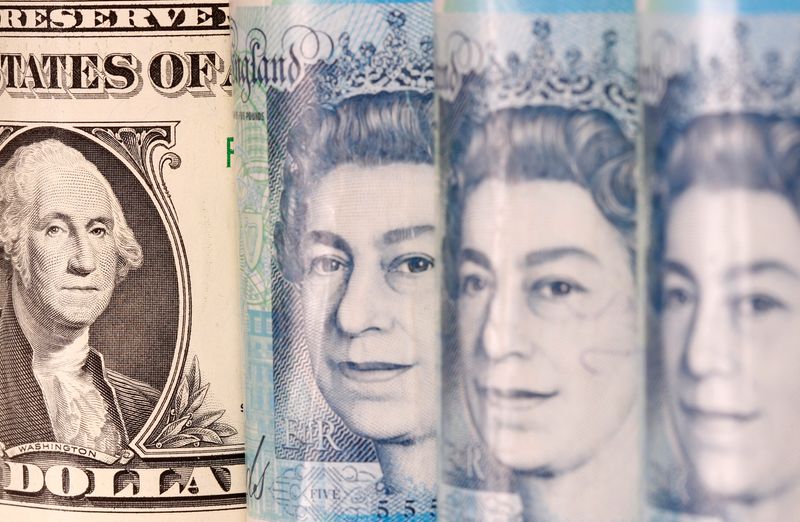By Amanda Cooper
LONDON (Reuters) – The pound eased modestly against the dollar, which held firm on Thursday, as investors remained laser-focused on who President-elect Donald Trump’s Treasury Secretary pick might be and what that might mean for his policies on growth, trade and taxes.
With the dollar in the ascendant, sterling wilted, last down 0.1% at $1.26405.
It’s risen 1.2% against the euro, which has come under intense pressure against the dollar in particular, as traders try to factor in the potential hit to euro zone growth from an aggressive stance on tariffs from the incoming Trump administration.
The pound got a brief lift the day before from data that showed UK consumer inflation staged an unwelcome pickup in October, confirming the belief in the market that the Bank of England will be one of the slowest among the big central banks to lower rates meaningfully over the coming year.
Even against that backdrop, sterling has fallen by close to 2% against the dollar this month and turned negative on the year.
Money markets currently show traders believe the BoE could lower rates by around 68 basis points by next December. For the Bank’s next meeting on Dec. 19, there’s no expectation of any move at all.
Commerzbank (ETR:CBKG) strategist Michael Pfister noted that there is barely a 50% chance priced in for a rate cut in February either.
“We still believe that the next rate cut will take place then. The argument in favour of this is that monetary policy is still likely to be seen as quite restrictive and policymakers will certainly want to avoid falling behind the curve,” he said.
He added that if inflation data shows a sustained pickup, the discussions around a February cut are “likely to intensify”.
Next (LON:NXT) up on the macro calendar are preliminary surveys of business activity for November for the UK, the euro zone, the United States and elsewhere due on Friday.
The most recent Purchasing Managers’ Index (PMI) for October came in at 52 for Britain, above the 50 mark that separates growth from contraction and ranking the UK second behind the United States, which logged a reading of 54 last month.
Friday’s PMI is expected to come in at 51.8, according to a Reuters poll of economists.

